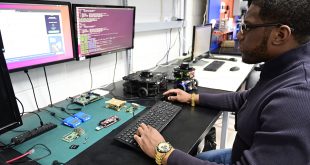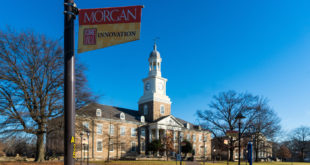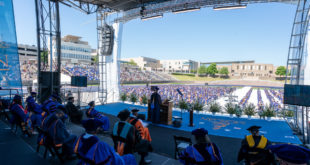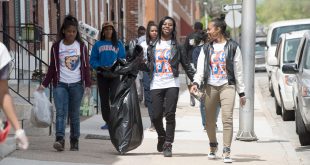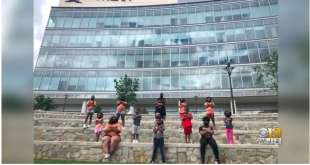Group to Examine Issues Related to City’s Most Intractable Problems and Develop Solutions
Morgan State University President David Wilson today announced a task force he has appointed to identify some of Baltimore City’s most challenging problems and develop a plan of action meant to address those issues. The “Gray” Days, Brighter Tomorrows task force, made up of leaders from virtually every aspect of the University including administrators, faculty and students, will collaborate on developing short and long-term strategies to alleviate systemic urban challenges such as education, poverty, public safety, public health, unemployment and more.
Dr. Maurice Taylor, Morgan’s vice president for Academic Outreach and Engagement, has been appointed to chair the panel. He says they will present Dr. Wilson with a final report of their work by the end of the current academic year’s spring semester.
“The City of Baltimore can no longer afford to take a Band-Aid approach to the acute problems that have plagued citizens for decades and that prevent the City from growing and thriving,” says Dr. Wilson, president of Morgan. “The events of this past April showed us the importance of addressing these issues in both the short and the long term by coming up with real solutions. Through this task force, Morgan will work with Mayor Stephanie Rawlings-Blake’s One Baltimore Initiative to bring some of the best and brightest minds to bear on the search for solutions. What we do is going to be vital to the future of our community.”
Of the 100 largest jurisdictions in America, Baltimore ranked last for income equality, according to recent government tax filing data and a Harvard University study. Baltimore was identified in the study as one of the areas where the chances for upward mobility of low-income African-American children are particularly bad. Children who grew up in better neighborhoods, which tended to have less poverty, less crime, more two-parent families and schools with higher test scores, fared much better in their adult life as opposed to their counterparts in less adequate communities. The study’s findings are further evidence suggesting that where young people live and how they grow up profoundly impacts their lives and on their communities in the future.
As Maryland’s premier public urban research institution and through the efforts of this new task force, Morgan hopes to expand opportunities for city residents in the areas to be identified in the final report.
“The task force that we have assembled allows us to leverage some of the university’s most critical minds and draw from a deep well of experience and knowledge in all of the City’s key areas of concern,” says Dr. Taylor. “We look forward to the challenge of using those minds and that vast experience to help build a better Baltimore.”
In charging the task force, Dr. Wilson said Morgan has the right tools to make a significant impact on these tough issues and is prepared to make several commitments:
– To serve as an anchor institution in Baltimore to expand access to educational opportunity for Baltimore City residents, and to conduct research that addresses neighborhood re-development, crime prevention, improving teaching and school administration, and reducing health disparities;
– To extend the services of its Institute for Urban Research, Robert M. Bell Center for Civil Rights, Center for Continuing and Professional Studies, as well as other centers and/or institutes located throughout the University’s ten (10) schools and colleges to enhance initiatives by the police, OneBaltimore and other entities to improve public services extended to City residents; and,
– To engage with other educational institutions, public agencies, community service organizations, foundations, and faith-based institutions, to implement action plans and/or programs to address a variety of Baltimore City’s problems including, but not necessarily limited to, urban planning, architectural design and restoration, social welfare services, financial literacy, and food and nutrition.
Dr. Wilson has asked the panel’s 27 members to begin work as soon as possible and to present an interim report by the end of the fall semester. A final report is anticipated by the close of the spring semester in May 2016.
Morgan State University, founded in 1867, is a Carnegie classified doctoral research institution offering more than 60 academic programs leading to bachelor’s degrees as well as programs at the master’s and doctoral levels. As Maryland’s public urban university, Morgan serves a multi-ethnic and multi-racial student body and seeks to ensure that the doors of higher education are opened as wide as possible to as many as possible. For more information on Morgan State University, visit www.morgan.edu.
Contact:
Clinton R. Coleman
Larry Jones
443-885-3022
 Morgan State University Newsroom Morgan State University
Morgan State University Newsroom Morgan State University
